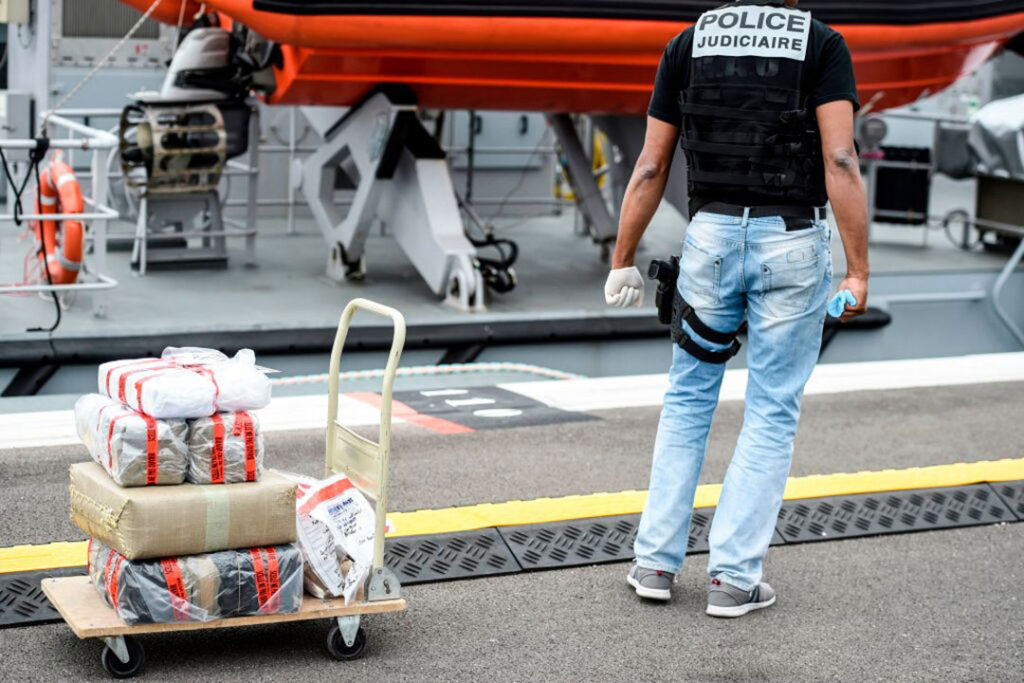ADF STAFF
Vessels involved in illegal, unreported and unregulated (IUU) fishing are being used for more in Africa than removing tons of fish from already depleted fish stocks and depriving hundreds of thousands of people of their livelihoods.
There is a trend of criminal groups using IUU fishing as a cover for drug and weapons smuggling, according to Ecotrust Canada, a nonprofit organization with a focus on fisheries management, and other organizations.
The use of small fishing vessels in drug smuggling has tripled worldwide in the past eight years and represents roughly 15% of the total global retail value of illicit drugs, a 2020 study in Fish and Fisheries found.
“The fishing sector is increasingly a vector for transporting drugs,” Dyhia Belhabib, principal investigator with Ecotrust Canada and lead author of the study, told Smithsonian Magazine.
Distinguishing legitimate fishing vessels from those engaged in organized crime can be nearly impossible, Ian Ralby, an international expert on maritime security and CEO of I.R. Consilium, told ADF.
“Legitimate fishing gives you good income,” Ralby said. “Then you have a legitimate place at the table for different meetings to discuss policy [in various countries]. If you’re in the legitimate fishing sector and also a trafficker, no one knows you’re a trafficker, and you’re involved in discussions on how maritime spaces are covered” by authorities.
Being on the water every day allows such operators to know where and how authorities enforce the law, enabling criminals to evade them. Many African countries are targeted for maritime smuggling schemes due to limited security.
Ralby said he has noticed trends of fishing vessels smuggling heroin from Asia and the Middle East into East Africa and cocaine from South America to West Africa.
In 2020, the Côte d’Ivoire Navy seized 411 kilograms of cocaine hidden in small plastic packages on a Spanish-flagged ship. The vessel unloaded the drugs onto a smaller boat that was intercepted by the Navy, Reuters reported.
About 40 tons of cocaine pass through West Africa annually, according to the Organization for Economic Cooperation and Development,.
The weapons smuggling trade in Africa has changed substantially in recent years. Five years ago, many weapons coming into East Africa were older Soviet weapons; now, an influx of newer Chinese weapons are being smuggled through Somalia and Djibouti into Yemen via Iranian fishing vessels, Ralby said.
“There are a lot of islands and rocks and shoals along the Red Sea coast used by traffickers,” Ralby said. “Large vessels come through and deposit weapons there. Local fishers and small canoes take them in.”
In Somalia, IUU fishing is a source of income for the terrorist group al-Shabaab, known to provide security for illegal foreign fishing vessels and often turning their guns on unprotected Somali fishermen, according to Verité, a nongovernmental organization that promotes fair working conditions for people worldwide.
The use of IUU fishing vessels in human trafficking is not as prevalent because hiding humans from authorities is more difficult. But the illicit trade often has grim outcomes for the scores of Nigerian women seeking a better life, many of whom wind up in Italy or the Caribbean, according to Ralby.
Some women are “being smuggled, then trafficked, others just trafficked,” he said. “Some are sold into slave markets. Some are cut up piece by piece, so you have people walking around with missing limbs because of the market for human parts. Libya has also become a major pool of trafficked or enslaved human beings.”
Poor maritime surveillance in many areas makes it hard to determine the extent of IUU fishing in such illicit activities, according to a 2020 paper by High Level Panel for a Sustainable Ocean Economy.
“One clear thing is that for the networks to be effective in executing these crimes, there are complicit law enforcement agents who take a bribe in exchange for looking the other way,” Kamal Deen-Ali, one of the paper’s authors, told Mongabay.com.
Ending maritime crimes “requires more than instituting laws and cooperation between countries and agencies,” Deen-Ali said. “It requires active intelligence gathering and importantly improving the welfare of coastal communities, many of whom are already vulnerable to the impact of depleting fisheries.”

